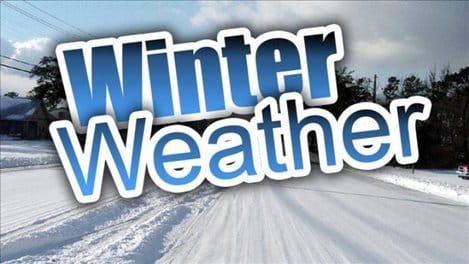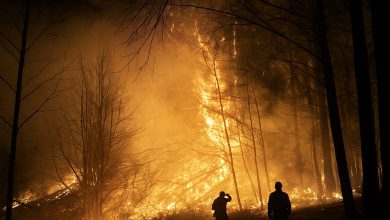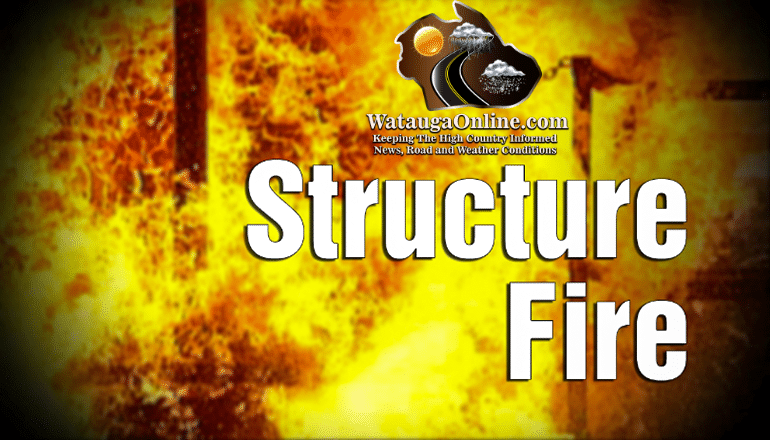
Last Updated on November 30, 2023 11:13 am
Dec. 3 – 9 is Winter Weather Preparedness Week. State and local officials are joining Governor Roy Cooper encouraging North Carolinians to plan and prepare now, before potentially dangerous winter weather arrives.
“Stay informed on the possibility of inclement weather and be prepared should it happen. Following the suggestions available on the readync.gov link will help assure you and your family are prepared for weather that could affect you. If you are using any fuel-fired heat sources or equipment you should always have a working carbon monoxide detector and smoke alarms. Now is a great time to check to ensure those are working properly, and change batteries if necessary. Remember, you should be checking those twice a year for proper operation.” said Matt Krause EM Coordinator for the Town of Boone.
“Every year nearly 10,000 fires are caused due to improper removal and disposal of hot ashes, according to the National Fire Protection Association. Hot coals, hidden in ashes can remain hot for days and only require oxygen to reignite. Always allow your ashes to cool and thoroughly douse them with water before disposing. Ensure ashes are being disposed in a tightly covered metal container that is at least ten feet away from any home or combustible materials. For additional information locally continue to monitor your Town of Boone, Watauga County Emergency Services and local fire departments websites and social media, for updates and informational posts.” said Emma Ward with Watauga County Emergency Services.
North Carolina’s proximity to the Appalachian Mountains, Atlantic Ocean, Gulf Stream and Gulf of Mexico creates complex winter weather forecasts. This winter, the state will likely be impacted by an El Niño pattern, which favors above normal precipitation across the state.
The North Carolina State Climate Office predicts that it will take a while for us to see most of the impact of these weather changes but expect a shift to wetter-than-normal conditions to arrive in January/February. While seasonal snow forecasts are complicated, historical odds favor at least one measurable snowfall for most of the state this winter. During winter weather events, emergency managers advise that the best way to stay safe is to stay informed and pay close attention to the latest forecast using local media or a National Oceanic and Atmospheric Administration weather radio and be alert for changing weather conditions. It’s important to know what different winter weather headlines mean and even though the criteria for winter weather watches, warnings and advisories vary across North Carolina they all have the same premises, so remember:
- Winter Storm Watch is issued when conditions are favorable for either heavy snow, sleet, or freezing rain within the next 24-48 hours.
- Winter Weather Advisory is issued when wintry weather is expected and residents should exercise caution as light to moderate amounts of snow, sleet, or freezing rain are expected within the next 12-36 hours, causing travel difficulties.
- Winter Storm Warning is issued when confidence is high that a winter storm will cause significant impacts within the next 12-36 hours.
“If you have come to the mountains to enjoy the winter weather and are renting a cabin or Air BNB, it is the responsibility of the rental agency to plow your road/driveway; if it is not a town or DOT maintained road. Our local emergency service agencies do not have the resources to provide food, water or medication deliveries for preventable incidents of which renters may become stranded. It is important to prepare for the effects of winter weather rather than to take reactionary measures.” Emma Ward Watauga County Emergency Services
To help ensure you are ready for winter weather, emergency managers suggest keeping at least a three-day supply of non-perishable food as well as medications in your home, along with fresh batteries on hand for weather radios and flashlights. Be sure to dress warmly by wearing multiple layers of thin clothing instead of a single layer of thick clothing.
When using alternative heating sources be sure you know how to safely operate them. It’s especially important to properly vent kerosene heaters and keep any electric generators outside and away from open windows or doors to prevent carbon monoxide poisoning; and never burn charcoal indoors. It’s also important to keep a fire extinguisher on hand.
If you must travel during bad weather, emergency officials remind motorists to leave plenty of room between you and other vehicles and, if driving on snow- or ice-covered roadways, reduce your speed. If conditions worsen, pull off the roadway and remain in your vehicle. Do not set out on foot unless you can see a building close by where you can take shelter. You should also store an emergency kit in your vehicle that includes a scraper, jumper cables, tow chain, sand/salt, blankets, flashlight, first aid kit and a road map.
Don’t forget to include pets in your emergency plans. To keep animals safe during winter weather, emergency management officials recommend you:
- Make an emergency supplies kit for your pet and include medical records, first aid kit, enough canned/dry food and water for three to seven days and a pet travel bag or carrier.
- Do not leave pets outside for long periods of time.
- Ensure your pet has a well-fitting collar.
- Bring pets inside when temperatures drop below freezing.
- Move livestock and other animals to a sheltered location with food and water.
For more information on how to prepare for winter storms, visit www.readync.gov.



















